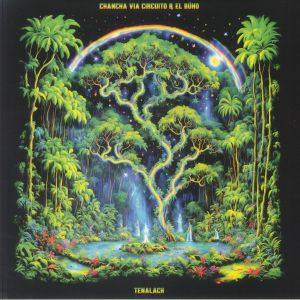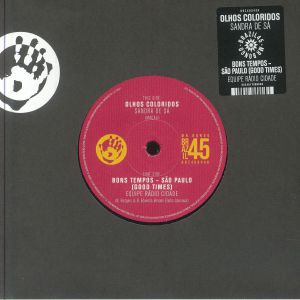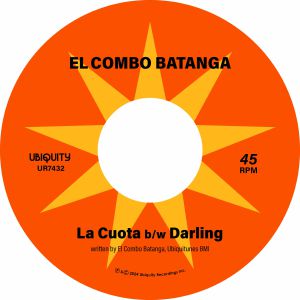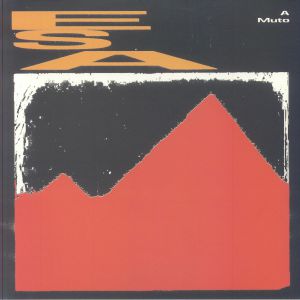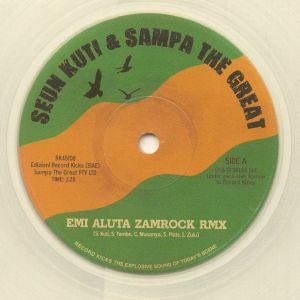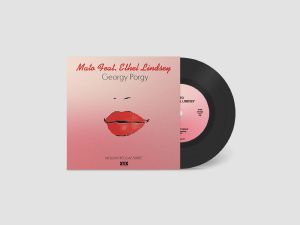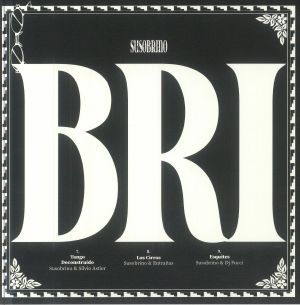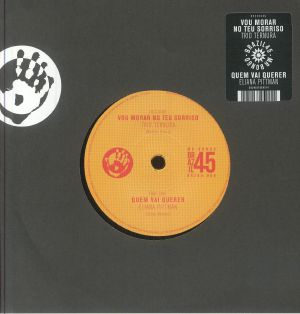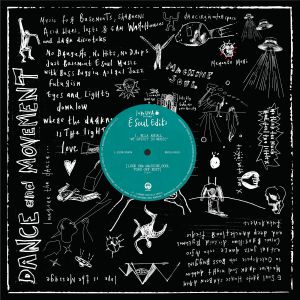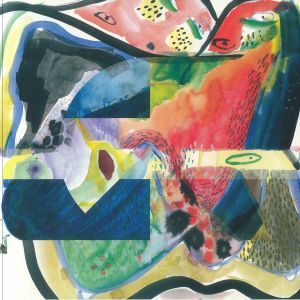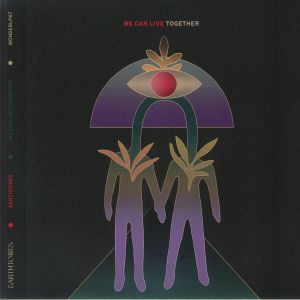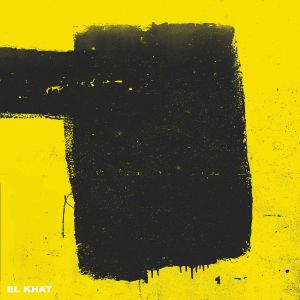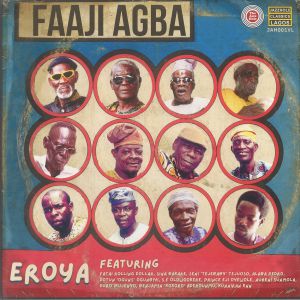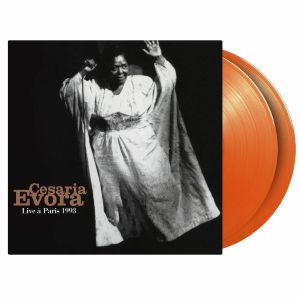Filter
Stock
Label
Featured
Release Title
Price
Tags
Back catalogue: Funk Soul & Jazz
Juno's full catalogue of Funk Soul & Jazz
Singles
Tenalach (limited 180 gram vinyl 12")
Cat: LPSHSH 067. Rel: 24 Oct 24
Review: Tenalach, the latest EP from Chancha Via Circuito and El Buho, engages listeners in an enigmatic and atmospheric soundscape, blending organic and electronic elements. Following their earlier collaborations, this release takes them deeper into uncharted sonic territory, creating a vivid, almost otherworldly experience. With its mysterious tones, Tenalach feels like a soundtrack to an alternate realityiimagine a journey through Latin American jungles and mountains, as if guided by the spirits of nature. The opener 'El Samurai' stays closest to the duo's signature folktronic sound, blending cowbells, violin-like synths, and animalistic rhythms. 'Sapo Cururu' introduces an intriguing mix of croaking frogs and driving snares, pushing genre boundaries with its primal energy. 'Oropendola' lifts with its strobing synths and the delicate flutter of birds, creating a dreamlike, airy atmosphere. Meanwhile, 'Sumay' delivers a powerful blend of epic synth lines and Chancha's hallmark percussion, evoking both majesty and melancholy. While the EP pulses with life, it's neither downtempo nor uptempoiexisting in a space that defies easy categorisation. Reflecting a more introspective and darker edge, Tenalach captures a subtle tension, hinting at the duo's contemplation of a rapidly changing world and the blurred lines between human and nature. A truly unique listen.
… Read moreGespielt von: Juno Recommends Downtempo
in stock $17.44
Olhos Coloridos (remastered) (limited 7")
Cat: BRZ 45040R. Rel: 29 Aug 24
Review: Sandra de Sa's 'Olhos Coloridos' and Equipe Radio Cidade's 'Bons Tempos Sao Paulo' bring vibrant Brazilian boogie back to life in this remastered reissue from Mr Bongo's Brazil 45's series. Sandra de Sa's track, from her 1982 self-titled LP, is a brilliant example of '80s MPB and boogie, featuring the iconic collaboration of Lincoln Olivetti, Robson Jorge, and members from Banda Black Rio. Funky basslines, dreamy Rhodes and jubilant horns complement Sa's outstanding vocals, making it a joyous, danceable piece reminiscent of Tim Maia and Marcos Valle's best. On Side-2, Equipe Radio Cidade's 'Bons Tempos Sao Paulo' transforms Chic's 'Good Times' into a Brazilian boogie delight. Originally a rare promo-only release from 1980, this version infuses the classic melody with samba rhythms, clavinet grooves, and cuica percussion breaks. Voiced by Sao Paulo radio DJs with festive greetings, it adds a unique local flavour to the familiar tune, reminiscent of the era's vibrant Brazilian music scene.
… Read moreGespielt von: Juno Recommends Disco
in stock $10.80
Review: The electrifying return of El Combo Batanga. The Afro-Cuban band and Ubiquity Records favourites descend upon us once more in a sallying storm of Isthmian lightning, bridging the spirit of classic Fania and Tico Records releases, and whipping them back around and through gales of Latin funk, son, timba and boogaloo. "Batanga" refers to the traditional Cuban instrument heard throughout their records, if you listen closely: new A cut 'La Cuota' brings an urgent, hyperbolic funk, while 'Darling' contrasts with nixie moods, a heart-burning Latin soul lament.
… Read moreGespielt von: Juno Recommends International
in stock $11.06
Vudu Y Chachacha (white blue & pink splattered vinyl 7")
Cat: SJ 128. Rel: 03 Sep 24
Review: Emerging from Austin's vibrant music scene, El Combo Oscuro infuses Latin psychedelia with the mystical essence of New Orleans. Their track 'Vudu y Chachacha' marries pulsating percussion with echoing guitars and a steady bassline, creating an entrancing soundscape. On Side-1 features a remix by New Orleans' Professor Shorthair, who transforms the original into a dance-floor anthem. With Rakaa Iriscience of Dilated Peoples lending his distinctive vocals, the remix amplifies the track's infectious groove. Presented on a limited edition 45 rpm, the bone-colored vinyl with blue and violet splatter adds a visual flair to the auditory experience. Both sides of this are a fine fusion of Latin rhythms and modern beats, offering a fresh take on cross-genre innovation.
… Read moreGespielt von: The Allergies, Juno Recommends International
in stock $14.12
Review: Isle of Jura revisits the wonderful 'A Muto' by Esa here with a fresh reissue of it in original form with various remixes. It was originally released in 1986 on the 'Atesa' album and became an instant hit in Cameroon and Africa. The lyrics of tell the story of a woman leaving her husband, frustrated with her isolation as the housekeeper. The song blends Makossa, a brass-heavy style from the French Cameroons, with Ambasse Bey which is a traditional fast-paced dance music from Cameroon. When it was first written, Martin gathered session musicians in Paris and personally programmed the drums and synths using a Linn Drum and Yamaha DX7 to create a unique fusion of modern and traditional Cameroonian sounds.
… Read more in stock $32.09
Emi Aluta (limited clear vinyl 7")
Cat: RK 45108C1. Rel: 13 Feb 25
Review: Afrobeat virtuoso Seun Kuti is soon to release his highly anticipated album, Heavier Yet (Lays The Crownless Head) later this year. It features guest appearances from Damian Marley and Sampa The Great so promises to be a global sensation. Ahead of that, we get a taste of things to come from his distinctive Afrobeat sound with this powerful new work on Milan's Record Kicks. First up here with get the bubbly rhythms of 'Emi Aluta' (Zamrock remix) then 'Emi Aluta' (feat Sampa The Great - 45 edit) comes complete with some hard bars.
… Read moreGespielt von: Juno Recommends International
in stock $14.12
Review: Cover songs can sometimes be difficult to tackle for an artist and even more so if it's a completely different genre. However, lending a fresh reggae twist to Toto's classic hit makes for a a great example of a successful one here. On side one, the English version of 'Georgy Porgy' features a laid-back, smooth reggae rhythm, with the iconic guitar hook reimagined as a reggae riff, giving the song a relaxed while still infectious vibe. Ethel Lindsey's soothing vocals blend seamlessly with the rhythm section, making this rendition feel both familiar and unique. On side two, the French version offers a delightful variation, with Ethel Lindsey's vocals taking on a slightly different tone, fitting the language while adding an extra layer of charm. The reggae influences remain strong and the song's laidback vibe is preserved on both versions.
… Read moreGespielt von: * Record Breakin' Music *, Juno Recommends Reggae
in stock $16.88
Cat: BRZ 45012R. Rel: 21 Jan 25
Review: The 12th release on Mr. Bongo's signature 45s series saw a reissue of two foundational releases in Brazil's modern popular music category; now the record hears a second round, fresh again off the master metal lacquer. On the A, we hear Brazilian samba luminary Elza Soares covering Jorge Ben's classic 'Mas Que Nada' - albeit with a hoarser vocal tone, such was Soares' signature voice, one which only led to a whopping 34-album career. B-sider Elizabeth, by contrast, upholds a mystery; the artist was nicknamed "Gatinha do Mato" ("jungle cat"), and recorded 'Vou Falar-Lhe Francamente' at some indeterminate point in 1960s Sao Paolo, when and where Brazilian local styles blended with funk and rock.
… Read moreGespielt von: Pete Haigh
in stock $12.46
BRI (7")
Cat: NNVINYL 004. Rel: 15 Nov 24
Review: Pro Latin percussionist come dance music producer Susobrino has set about releasing his forthcoming record BRI in three parts, the third and final of which you hear here. This fulfilment of a triptych delivers three collaborations with three fellow amazing artists - Silvio Astier, Entranas and DJ Fucci - all of whom knock out each rhythm, bending it to a taut, convected degree we didn't know was possible. So to all the chin-strokers out there: if you think dance music isn't dance music unless it stays rooted to the ones and threes, you're wrong! Building on Tumacoan, Ecuadorian and Bolivian rhythms, Susobrino commandeers three further, most masterfully freehanded rhythmic frolics, the best of which has to be the bird-call imitating, gourd-slapping 'Esquites'.
… Read moreGespielt von: Juno Recommends International
in stock $15.22
Cat: BRZ 45069R. Rel: 27 Sep 24
Review: The relaunch of the BRZ45s series brings back some of the most coveted Brazilian 45s, this time with a vibrant new design. This release features two standout tracks sure to captivate collectors and DJs alike. On Side-1, Trio Ternura's 'Vou Morar No Teu Sorriso' delivers an energetic blend of funk and soul, with powerful drums, dynamic breaks, and rich horns that drive the track forward. Originally from their 1971 self-titled LP, it's a perennial favorite in DJ sets, known for its infectious rhythm and big, soulful vocals. On Side-2, Eliana Pittman's 'Quem Vai Querer', a samba-funk gem from 1977. This track rolls out with a groovy samba beat, layered percussion and Eliana's captivating lead vocal, building beautifully into a catchy chorus, with the intensity of the drums amplifying as it progresses. Both tracks are perfect for the dancefloor, offering a taste of Brazil's rich musical heritage with a fresh, modern twist.
… Read moreGespielt von: Juno Recommends International
in stock $9.95
E Soul Cultura Edits (12")
Cat: ESOUL12 003. Rel: 06 May 25
Review: While he's not put out many re-edits of late, Luke Una has serious scalpel-job pedigree. Back in the 2000s, he and then DJ partner Justin Crawford released a series of largely disco-focused edit EPs on the hush-hush Electrik Souls series. Here he returns to the format with the first in a series of reworks focused on his popular, dusty-fingered E Soul Cultura project. He begins by teasing out and lightly toughening up a killer Caribbean cut from the 1990s, Ella Andall's 'My Spirit Is Music' - an insanely rare and hard to find number that the Sheffield-born DJ has naturally tweaked sensitively. Elsewhere, he emphasises the 'proto-house dub' feel of Slick Mission's early UK house number 'Time's Up', before going even dubbed-out and more percussive on Manu Dibango's lesser-known cover of Latin disco classic 'Jingo'.
… Read more in stock $18.54
Alben
in stock $31.27
Review: Earthtones land on Wonderwheel here with their first full-length album. The title encapsulates a message of unity and hope for humanity and aims to emphasise our interconnectedness and the universal bond of love. Rooted in Folkloric Futurism, Earthtones merges global folk traditions with modern technology inspired by pioneers like Mr. Fingers and Kevin Saunderson. Analog synthesisers, vintage drum machines, and folk vocals create a truly unique sound that celebrates the past and the future, spirituality, feminism, and peace. Highlights include '??sanyin' featuring Maikel Alberto Salazar and 'La Mujer Serpiente' with Lido Pimienta.
… Read moreGespielt von: Juno Recommends International
in stock $24.35
Gespielt von: AfroBase (Radio Chart), Juno Recommends International
in stock $37.63
Gespielt von: Juno Recommends International
in stock $22.69
Review: Eroya is a Lagos-based collective bridging generations of musicians who trace Nigerian music from the 1940s to today's Naija grooves. Their sound weaves so called styles such as palm-wine, agidigbo, juju, highlife, Afro-funk and Afrobeat traditions. Key members include Sina Ayinde Bakare, son of juju pioneer Ayinde Bakare, juju legend Fatai Rolling Dollar, Afro-funk saxophonist Prince Eji Oyewole and Afrobeat pianist Duro Ikujenyo of Fela Kuti's Egypt 80. Highlights on this album include Alaba Pedro's soulful 'Ekaete', Tejebaby's hypnotic 'Africa', and Oyewole's flute-led 'Experience'. With its bubbling jazz textures and deep rhythmic energy, Eroya is a perfect tribute to Nigeria's enduring musical contributions.
… Read moreGespielt von: AfroBase (Radio Chart)
in stock $32.65
Gespielt von: Juno Recommends Broken Beat Nu Jazz
in stock $27.95
Live A Paris 1993 (limited numbered 180 gram audiophile orange vinyl 2xLP + insert)
Cat: MOVLP 3875C. Rel: 23 Apr 25
Gespielt von: Juno Recommends International
in stock $48.70
Gespielt von: Juno Recommends International
in stock $14.39
Meridian Brothers & El Grupo Renacimiento (reissue) (translucent green vinyl LP + insert)
Cat: ANSW 4001LPG. Rel: 11 Jul 24
Review: El Grupo Renacimiento, the brainchild of Colombia's Meridian Brothers, offers a fantastical journey into a surreal world where salsa meets Kafkaesque transformations. Led by the versatile musician Eblis Alvarez, Meridian Brothers have long blurred the lines between avant-garde experimentation and traditional Latin rhythms, including Colombia's cumbia. With El Grupo Renacimiento, Alvarez and his collaborators craft a whimsical playlist that touches on themes ranging from anti-police protest to addiction and broken love, each track infused with a surreal twist and paying homage to salsa's diverse subgenres. Songs like 'Triste Son' parody Cuban son with a cha-cha beat, while 'Poema del Salsero Resentido' forewarns of a rhythmic apocalypse. 'Metamorfosis' explores the theme of transhumanism with percussive intensity. Despite the album's tongue-in-cheek approach reminiscent of Latin Spinal Tap, the music remains tightly woven and playful. Released on the revived Ansonia label, marking its first new release in three decades, El Grupo Renacimiento is a delightful fusion of creativity and nostalgia, pushing musical boundaries while paying homage to salsa's rich heritage.
… Read moreGespielt von: Juno Recommends International
in stock $29.61
Review: This 1965 collaborative album brings together some of the international music world's finest talents. Featuring Nara Leao's soothing vocals, Edu Lobo's striking guitar and Tamba Trio's vibrant harmonies, 5 Na Bossa captures the essence of Brazilian bossa nova and jazz with a warm and sunny inflexion. With iconic tracks like 'Reza' and 'Zambi' bringing Latin jazz flair, and Edu Lobo's 'Estatuinha' offering more ruminative folk sounds, this is a brilliant album for those who like South American sounds in all their many guises. The album was recorded live at the Paramount Theater in Sao Paulo and is truly essential listening.
… Read moreGespielt von: Juno Recommends International
in stock $19.37

 USD
USD





